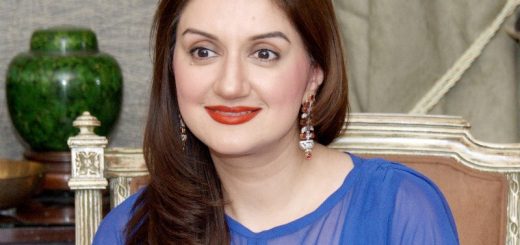Expert Advice For Hair Care During Pregnancy
During pregnancy, the hair often looks its best. However after the birth, or after breast-feeding ceases, about 50 percent of mothers experience what appears to be excessive hair loss. This is related to the three stages of hair growth. During pregnancy and breast-feeding, hormones keep the hair at the growing stage for longer than usual, so it appears thicker and fuller. Some time after the birth – usually about 12 weeks later – this hair enters about resting stage, at the end of which all the hair that has been in the resting phase is shed. What appears to have been excessive hair loss is therefore simply a postponement of a natural occurrence,a condition that is known as post-partum alopecia.
The chaotic hormonal changes in the body cause the hair to become brittle and lusterless. The hair is made up of hard protein called keratin. During pregnancy, the body requirement of protein rises. This takes away a chunk of protein that is essential for the growth of a gorgeous mane. With the right techniques and adequate care you can nourish your hair at this time and revitalize it. Hair care during pregnancy should be of utmost importance and form an essential part of your beauty regime in order to restore the beauty and texture of your locks.
Action of Prenatal Vitamins On Hair
It is essential for you to consult a doctor and take appropriate pre natal vitamins during pregnancy if you are looking to retain the beauty for your locks and give birth to a healthy baby. It is necessary for you to follow a good routine and stick to it in order to avail maximum benefits. The essential vitamins and minerals shield your hair against the havoc caused by the action of changing hormones on hair. They nourish your locks enabling them to stay glossy and soft.
Changes in Hair Texture
A number of women find that their hair becomes more voluminous and shiny during pregnancy. This is because of the increased levels of the female growth hormone called estrogen.
The problem of hair loss associated with pregnancy occurs in the post-natal period when the hair goes into the resting phase. Once the baby is delivered the activity of estrogen causes hair loss, which is part of the normal hair loss cycle. This condition does not cause bald spots or permanent hair loss, and begins to reduce within 3 to 4 months.
The texture of hair also undergoes change during pregnancy. Straight hair tends to curl, whereas curly hair straightens up, greasy hair can worsen and dry hair may become extremely brittle.
Hair Coloring
Coloring the hair during pregnancy must be avoided in the first three months. You can color your hair only after the first trimester with permanent color. During the first three months of pregnancy, the baby undergoes significant neurological developments and is susceptible to reaction. However, research does not prove that using hair color during pregnancy is harmful for the baby. Chemicals used in colorants are not highly toxic and exposure to them is low. But it is recommended that you consult your doctor before coloring or dyeing your locks while you are expecting. Pure henna is a better alternative to permanent coloring or streaking as it is not toxic and has no side effects.
Cuts And Styling
Most women opt for a short hair cut during pregnancy as it is easier to handle at child birth. Shorter styles are easier to manage but you can also leave your hair the way it is. It is recommended that you go for a regular trim during pregnancy in order to keep the split ends at bay.
Shampoo During Pregnancy
Most women must use a mild shampoo that is friendly for the hair. The hair tends to turn voluminous and bouncy for some women, while for others it becomes a lusterless, dry mop. Hair care during pregnancy revolves round proper cleaning and conditioning. You must deep condition your hair if it is on the drier side and use a conditioner sparingly, if it becomes oily. Strong shampoos and conditioners must be avoided for maximum benefits.
Treat Yourself With Hot Oil
Hot oil massage on a regular basis is great for hair care during pregnancy. It helps keep the hair in good shape and restores its natural sheen and beauty. This also relieves you from any sort of stress and increases blood circulation on the scalp.



